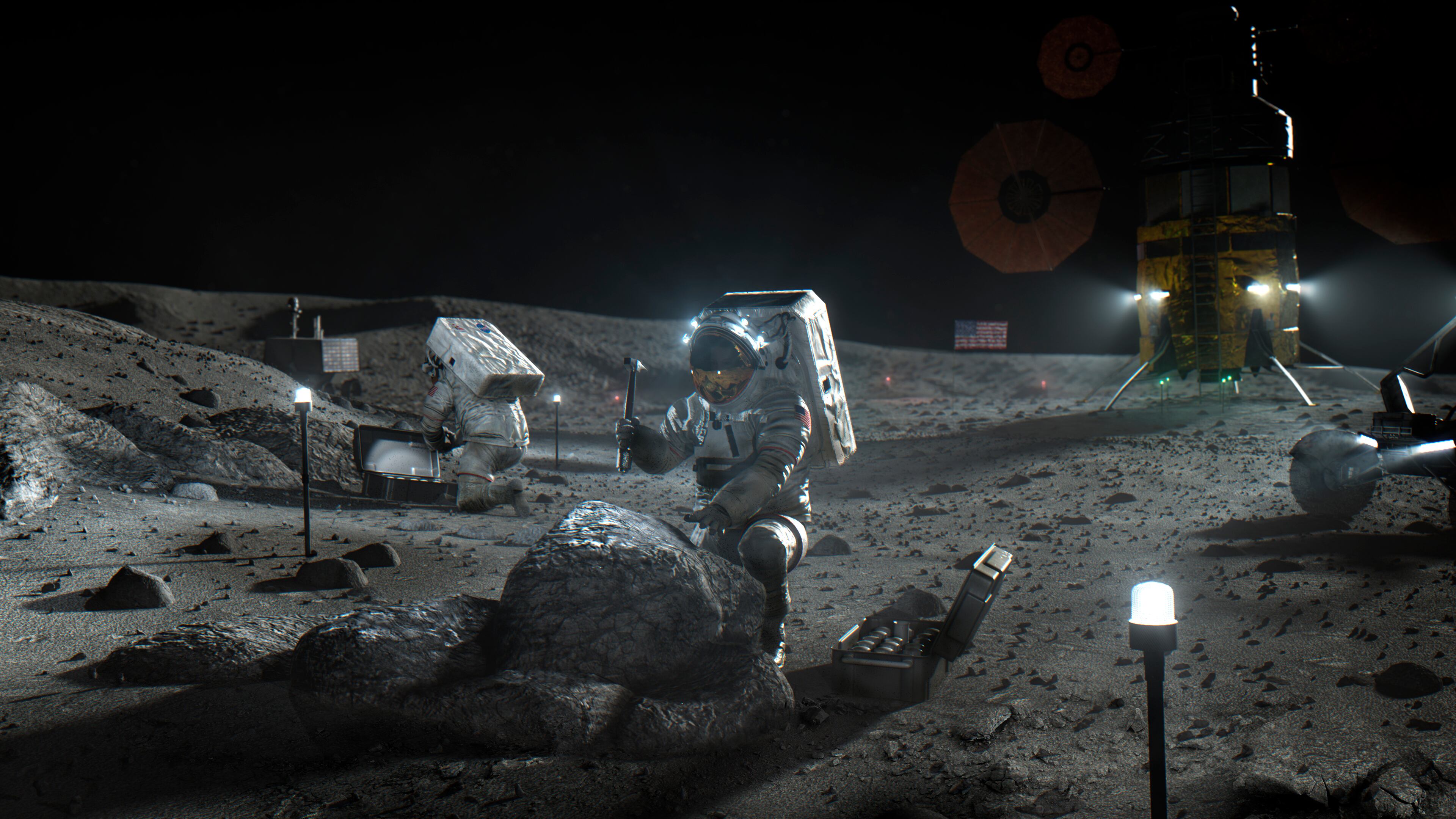By Marcia Dunn
NASA is turning to private industry for the first lunar landers for astronauts in a half-century, with three competing, quite contrasting versions.
NASA Administrator Jim Bridenstine announced Thursday the three companies that will develop, build and fly lunar landers, with the goal of returning astronauts to the moon in 2024 and ultimately on to Mars.
The companies are SpaceX in Hawthorne, California, led by Elon Musk; Blue Origin in Kent, Washington, founded by Amazon’s Jeff Bezos; and Dynetics, a Huntsville, Alabama, subsidiary of Leidos. Altogether, the contracts for the initial 10-month period total $967 million.
“This is the last piece that we need in order to get to the moon” by 2024, Bridenstine said.
He noted it will be the first lunar lander since the last Apollo moon mission in 1972.
Over the next 10 months, each company will refine its concept and NASA will decide which lander to test first. Bridenstine said NASA will go with the company that has the highest probability of success by 2024.
NASA will rely on its own Orion capsules and Space Launch System megarockets — still under development — to launch astronauts to the moon.
The two other companies, Boeing and Vivace, put in bids but were eliminated early on, leaving the three awarded contracts. Blue Origin got more than half the total amount— $579 million — more than four times more than SpaceX's $135 million. Dynetics was in between, with $253 million.
SpaceX’s proposed Starship lander is so tall that astronauts will use an elevator to get to and from the lunar surface. Blue Origin’s version comes with a big ladder, according to artistic renderings. The Dynetics lander is so low to the ground that only a few steps are needed, like a front porch, a feature that NASA gave high marks for safety and efficiency.
SpaceX is using its own Starship spacecraft — still under development in Texas — and its own rockets. Blue Origin and Dynetics are partnering with numerous subcontractors, including commercial launch companies.
Going commercial, Bridenstine said, will drive down costs while increasing access. It builds off of NASA’s commercial cargo and crew programs for the International Space Station. Just last November, SpaceX and Blue Origin were among the companies that won contracts to make cargo deliveries to the moon.
NASA wants the new Artemis moon-landing program to be sustainable, unlike Apollo, with multiple missions and multiple locations on the lunar surface. While only one company will carry the first woman and next man to the lunar surface, all three will participate over the long haul, officials noted.
By learning how to live and work on another world — the moon — NASA will be better equipped to eventually send astronauts to Mars, Bridenstine said.
In a teleconference with reporters, Musk embraced this "potential for an incredibly exciting future in space with a base on the moon and ultimately sending people and having a self-sustaining city on Mars.”
Dynetics’ vice president of space systems, Kim Doering said her team is excited not just about 2024 but the long-term lunar economy.
And Blue Origin chief executive Bob Smith was among those calling it a historic day. “Going to the moon is the reason why we got into this business,” he said.
The Associated Press Health and Science Department receives support from the Howard Hughes Medical Institute’s Department of Science Education. The AP is solely responsible for all content.













